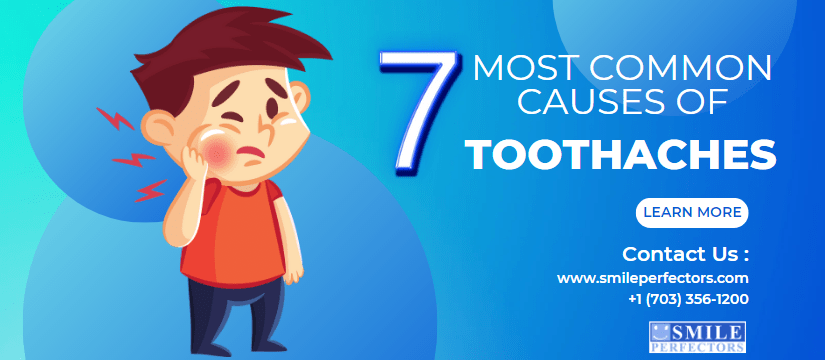

Persistent toothaches can significantly impact daily life, leaving you in discomfort and questioning the underlying causes. This article delves into the frustrating issue of persistent toothaches and uncovers the root causes, offering actionable steps towards relief. We’ll explore potential problems like cavities, gum disease, and impacted wisdom teeth. Understanding these issues, along with helpful remedies and preventative strategies, will empower you to take control of your oral health.
Understanding the Root Causes of Persistent Toothaches
Persistent toothaches, a common oral health concern, aren’t always easily diagnosed. The pain often stems from an underlying issue within the tooth or surrounding structures, and ignoring the pain can lead to more serious complications. This often involves pinpointing the source of the problem for effective treatment. Toothaches can be attributed to multiple factors, including bacterial infections, gum disease, and impacted wisdom teeth. Recognizing these underlying conditions is the first step towards effective treatment.
Identifying Potential Causes:
- Cavities: Dental caries, or cavities, are often a primary cause. Bacteria create acid that erodes the tooth enamel, potentially causing throbbing pain.
- Gum Disease: Inflammation and infection of the gums, known as gingivitis or periodontitis, can lead to persistent pain and discomfort.
- Impacted Wisdom Teeth: Wisdom teeth that fail to fully erupt or become impacted can cause pain, swelling, and infection.
The Role of Dental Infections in Toothache
Dental infections, particularly in the form of abscesses, are a common cause of intense, throbbing pain. Bacteria can penetrate the tooth’s hard enamel and into the soft inner pulp, leading to a localized infection. Identifying and treating these infections promptly is crucial to preventing further complications. This can often involve a root canal or other dental treatments. Furthermore, a dental abscess can rapidly escalate and affect surrounding tissues, potentially causing swelling and significant pain. Left untreated, these infections can spread, leading to more serious health concerns.
How Infections Develop and Spread
- Tooth Decay: Decay deepens, allowing bacteria to infect the pulp.
- Abscess Formation: Pus accumulation creates intense pressure and throbbing pain.
- Potential Complications: Infection spreads to adjacent teeth or tissues.
Gum Disease: A Silent Culprit in Persistent Toothaches
Often overlooked, gum disease can trigger persistent toothaches. Untreated gingivitis, an early stage of gum disease, can cause inflammation and irritation. As the condition progresses to periodontitis, pockets form between teeth and gums, allowing bacteria to accumulate and intensify the pain. This can often result in a persistent, dull ache. Understanding the signs and symptoms and taking preventive measures is crucial in maintaining oral health.
Symptoms of Gum Disease
- Redness and swelling of the gums
- Bleeding gums during brushing or flossing
- Receding gums
- Loose teeth
Impacted Wisdom Teeth: A Potential Source of Discomfort
Impacted wisdom teeth, often causing pain and discomfort, can arise from insufficient space in the jaw for the teeth to fully erupt. The partially emerged teeth can become trapped, leading to infections. This can create significant pain, tenderness in the jaw, and swelling. An examination with a dental specialist is necessary for proper diagnosis. The presence of wisdom teeth frequently requires professional intervention for appropriate treatment.
Recognizing the Symptoms
- Pain and swelling around the jaw
- Tenderness
- Difficulty chewing
- Swelling in the face or neck
Diagnosing and Treating Persistent Toothaches
Accurate diagnosis is vital for addressing persistent toothaches. A dentist, through a thorough examination, can identify the source and provide appropriate treatment. This includes X-rays, oral exams, and potentially more specialized tests. The most appropriate treatment option will depend on the underlying cause of the toothache. This may include fillings, root canals, extractions, or antibiotics, depending on the severity and origin. It’s crucial to avoid self-treating or using home remedies without consulting a dental professional.
When to Seek Professional Help
- Pain that persists for more than a day or two
- Severe pain
- Swelling or tenderness
- Fever
FAQ
Q: What are some home remedies for a toothache?
A: While some over-the-counter pain relievers might offer temporary relief, home remedies should not be considered a substitute for professional dental care. Applying a cold compress to the affected area might offer slight relief, and over-the-counter pain medications can provide temporary pain relief. However, persistent pain warrants a professional consultation with a dentist to diagnose and treat the underlying cause.
Q: Can stress cause toothaches?
A: While stress does not directly cause toothaches, stress can exacerbate existing oral health issues. Stress can weaken the immune system, making individuals more susceptible to infections and complications. Stress can also manifest as teeth grinding or clenching, which can contribute to dental problems over time.
Q: How often should I visit the dentist for checkups?
A: Regular dental checkups are crucial for preventative oral care and early detection of potential problems. Dentists recommend a visit at least twice a year for checkups and cleanings. Early detection of issues, such as cavities or gum disease, is essential for successful treatment.
Q: What is a root canal?
A: A root canal is a procedure performed by a dentist to treat a severe tooth infection. The procedure involves removing infected pulp tissue from the tooth’s root canal. This prevents the spread of infection and saves the tooth from extraction. Following a root canal, a tooth is often capped to protect and support it.
This section includes frequently asked questions regarding persistent toothaches.
In conclusion, persistent toothaches often signal underlying dental issues that need prompt attention. By understanding the potential causes, from cavities to impacted wisdom teeth, and by practicing preventative oral hygiene, you can significantly reduce the frequency and severity of these frustrating episodes. Schedule a checkup with your dentist today to address the root cause of your toothache and regain your oral health.
